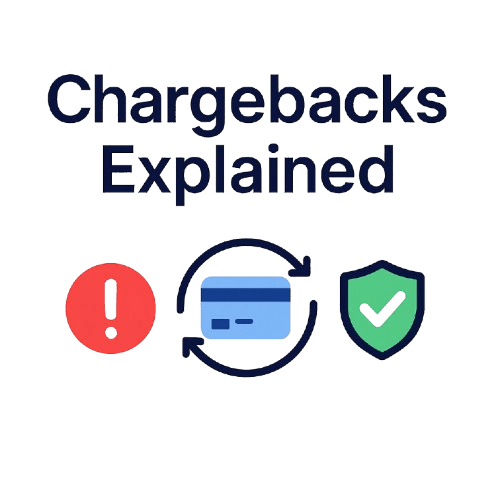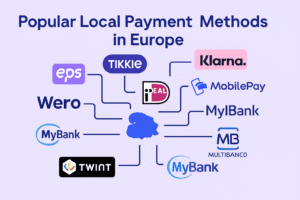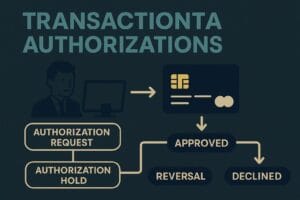What is a Chargeback?
A chargeback occurs when a cardholder disputes a transaction with their bank, requesting a reversal of the payment. Unlike a refund, which is initiated by the merchant, a chargeback is processed by the issuing bank and can be forced on the merchant without prior warning.
Why Chargebacks Happen
Chargebacks can stem from several causes. Fraudulent transactions occur when the cardholder claims they did not authorize the payment. Friendly fraud, on the other hand, is when a legitimate customer disputes a charge they made, often due to confusion or buyer’s remorse. Errors on the merchant’s side, such as double billing, incorrect product delivery, or unprocessed refunds, can also lead to disputes. Additionally, customers may claim that the product or service was never received.
The Chargeback Process
When a customer disputes a transaction, the bank begins a formal investigation. If the bank finds the claim valid, the merchant’s account is debited. The merchant then has an opportunity to submit evidence to contest the chargeback. Once the bank reviews the evidence, it reaches a final decision. This process can be time-consuming and costly if not managed effectively.
Common Chargeback Reason Codes
Each card network categorizes chargebacks with specific reason codes. Understanding these codes helps merchants prepare appropriate responses and provide the correct documentation when disputes arise.
-
Visa:
-
Fraud: 10.4 (Other Fraud), 10.5 (Visa Fraud Monitoring Program)
-
Processing Errors: 12.1 (Late Presentment), 12.6 (Incorrect Currency)
-
Consumer Disputes: 13.1 (Services Not Provided), 13.3 (Not as Described)
-
-
Mastercard:
-
Fraud: 4837 (No Cardholder Authorization), 4840 (Fraudulent Processing)
-
Authorization Issues: 4830 (Authorization Noncompliance)
-
Processing Errors: 4831 (Incorrect Transaction Amount)
-
-
American Express:
-
Fraud: F24 (No Cardholder Authorization)
-
Goods or Services Issues: C08 (Goods/Services Not Received), C31 (Goods/Services Not as Described)
-
Merchants should familiarize themselves with these codes to ensure timely and accurate responses to disputes.
The Real Impact of Chargebacks
The financial implications of chargebacks are significant. On average, each chargeback costs merchants around $191, far exceeding the original transaction value. Beyond the immediate financial hit, high chargeback rates can damage a merchant’s reputation with banks and payment providers. Consistently high ratios may even result in account termination.
Statistics reveal the scale of the issue. Chargebacks are expected to reach 337 million disputes by 2025. Merchants worldwide lose an estimated $15 billion annually to fraudulent chargebacks. Friendly fraud alone accounts for 45 to 61 percent of all cases, and merchants only win about 18 to 21 percent of disputes. We have seen some cases in escorting services, which have improved over time and needed to make changes to their processes.
Tools and Best Practices to Prevent Chargebacks
Preventing chargebacks requires a combination of technology, clear communication, and solid operational practices. Fraud prevention software, particularly those powered by AI, can detect suspicious transactions in real-time. Chargeback alerts provide early warnings, allowing merchants to address issues before they escalate.
Clear billing descriptors ensure that customers can easily recognize transactions on their statements, reducing confusion. Pre-dispute collaboration platforms like Ethoca and Verifi offer additional layers of protection by sharing transaction details with banks to prevent unnecessary disputes.
Strong customer service plays a crucial role in chargeback prevention. Prompt and transparent communication can often resolve customer concerns without escalating to a dispute. Maintaining comprehensive documentation, including proof of delivery, invoices, and communication logs, also strengthens a merchant’s position when contesting a chargeback.
How to Respond to a Chargeback
Responding effectively to a chargeback, commonly referred to as disputing the chargeback, begins with understanding the reason code provided by the bank. Merchants must gather all relevant evidence, such as receipts, delivery confirmations, and any communication with the customer. A well-structured response supported by strong documentation can significantly improve the chances of winning the dispute.
FastoPayments assists merchants throughout the disputing process by providing tailored guidance, access to advanced fraud detection tools, and support in preparing the necessary evidence. Our expertise helps merchants increase their win rate by ensuring that each response is comprehensive, timely, and aligned with the card network’s requirements. Additionally, we offer ongoing monitoring and feedback analysis to strengthen future responses and minimize the risk of recurrent chargebacks.
Chargeback Thresholds and Compliance
Compliance with card network rules is critical to maintaining a healthy and sustainable payment environment. Visa’s VAMP rules, in particular, establish strict thresholds for fraud and chargeback ratios that merchants must adhere to in order to remain in good standing. Exceeding these limits can lead to financial penalties, heightened scrutiny from payment providers, and even potential restrictions on processing capabilities.
Understanding and staying compliant with programs like Visa’s VAMP is essential for merchants looking to keep their chargeback and fraud ratios under control. If you want to explore this further, we have a comprehensive guide that breaks down everything you need to know about the latest Visa VAMP requirements and how they impact your business.
At FastoPayments, we help merchants not only stay compliant with these thresholds but also implement proactive strategies to keep fraud and chargebacks under control. Our hands-on support, monitoring tools, and tailored advice ensure that your business stays within acceptable limits while optimizing approval rates and minimizing financial risk.
The Role of Payment Partners
A knowledgeable payment partner can provide significant support in managing chargebacks. By monitoring chargeback ratios, implementing fraud detection systems, and guiding merchants through the dispute process, these partners help protect both revenue and reputation.
FastoPayments’ Way to Help You Succeed Against Chargebacks
Chargebacks are a growing challenge for merchants, but with the right expertise and tools, they can be effectively managed and reduced. Success comes from understanding the process, being proactive about prevention, and having the right partner by your side.
At FastoPayments, we take a hands-on approach to help merchants minimize and fight chargebacks. Our solutions are built to not just react to disputes but to prevent them from occurring in the first place. We guide you through the full lifecycle of chargeback management, from setting up fraud prevention measures to providing expert support when it comes to disputing a case.
Partnering with FastoPayments means gaining a strategic ally that monitors your chargeback ratios, strengthens your defenses against fraud, and equips your business with the insights needed to maintain profitability. Let us help you protect your revenue, enhance your payment flows, and secure long-term growth.
💡 Interested in learning more about what’s included in a typical high-risk merchant account? View our complete breakdown of FastoPayments’s high-risk merchant accounts.




